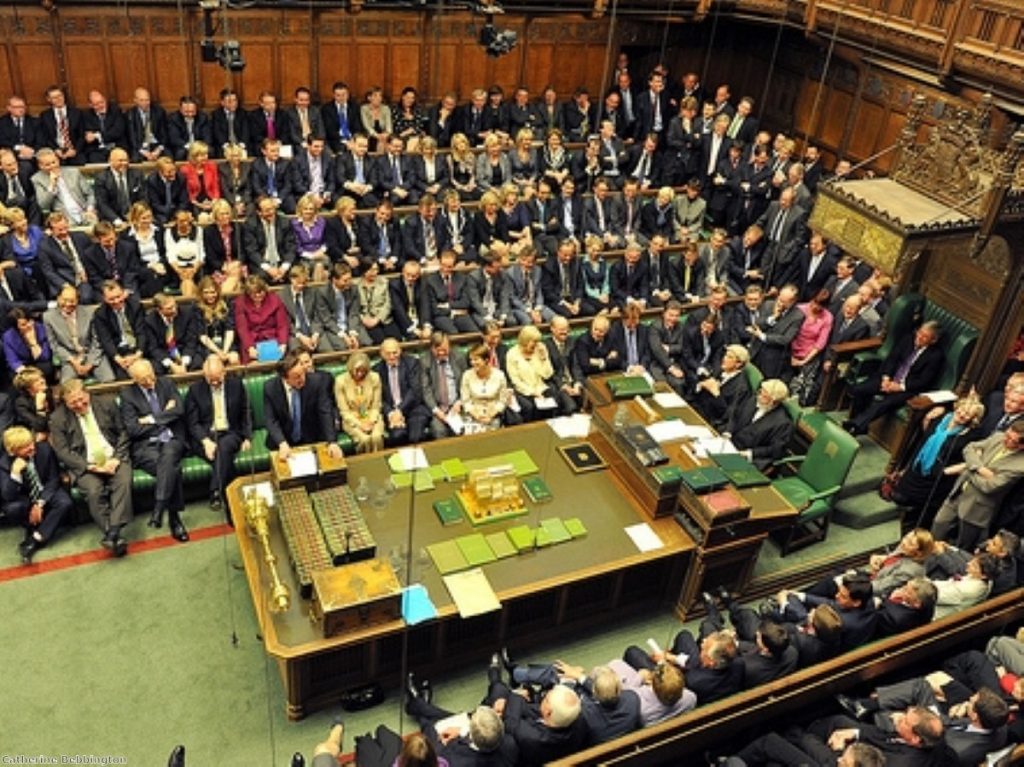Tory MPs admire Cameron’s laurels of defeat
Make your choice: David Cameron is either a feckless idiot or a principled champion of Britain. On his opposition to Jean-Claude Juncker, it seems, there is no middle ground.
Such was the enormity of his defeat last week that MPs questioning the prime minister really had no choice but to either disapprove or embrace his courageous (always a dodgy word in politics) strategy.
Ed Miliband was always going to go for the throat. The only question was whether he would repeat his washed-out handling of the Andy Coulson guilty verdict last Wednesday.
As so often happens with the leader of the opposition, he followed a bad performance with a very good one.


Cameron, Miliband declared, "was outwitted, outmanoeuvred and outvoted" over Juncker. In Labour's version of events, the rest of Europe "simply lost patience as a result of his actions". Cameron is treated with disdain because they suspect his primary motivation of being "to help solve the problems of the Conservative party, not the problems of the European Union".
Given that the language of the 'national interest' is never far away from the prime minister's lips, this was an incisive critique from Miliband. It paints Cameron as a man capable of handling the European issue only through the prism of Tory disquiet.
There is much to back this up. Recent days have cast renewed attention on Cameron's 2009 decision to leave the European People's party (EPP) grouping. It was a pledge originally made in his leadership election campaign at a time when his victory over rival David Davis was far from certain. He then proceeded to put off making good on his promise for as long as possible, before finally gritting his teeth and doing so with the advent of a new European parliament. This decision denied the Tories a say over Juncker, it was suggested. As the Liberal Democrats' former leader Charles Kennedy put it, Cameron had effectively foresworn "an influence in private, instead of an impotence in public".
The PM's subsequent repositioned European policy shifts – because of the Lisbon treaty later in 2009, and then because of referendum pressure in January 2013's Bloomberg speech – have all smelt the same. The stink of being forced to do something you don't really want to under pressure has been overwhelming. And yet, if you're a Conservative MP, none of this really matters.
This was summed up by John Redwood's languorous opening remarks. He only managed to get to "I congratulate the prime minister…" before being drowned out in a wave of triumphant cheers.
Redwood was not the only eurosceptic backbencher normally suspicious of Cameron's intentions who was now purring quiescently. Nicholas Soames revelled in the PM's "principled stand". Christopher Chope liked the "refreshing transparency" Cameron had brought to the negotiating process. David Nuttall, one of the most rebellious Tories of the lot, declared the prime minister "did the right thing". If Cameron has played a huge price for making an enemy of Juncker, this was at least his reward.
Father of the House Sir Peter Tapsell, whose delivery has now reached the grandeur of a slow-moving glacier, spent about five minutes saying the word "admi-wation". But he then voiced a concern that the EU was making a big mistake in moving "its economic frontier to within 300 miles of Moscow". The Ukrainian crisis remains a diplomatic powder-keg; one German MP I spoke to in Berlin yesterday made clear Britain needed to stop arguing with the rest of the EU in order to let Europe unite against Vladimir Putin.
Cameron couldn't care less. The Bundestag doesn't contain the MPs he needs to remain in Downing Street; the Commons chamber does. Yes, he has made it easier for the opposition to pour scorn on him. That doesn't matter if the same action makes you even more popular with your own MPs. Miliband had a good outing this afternoon – but Cameron had an even better one.

